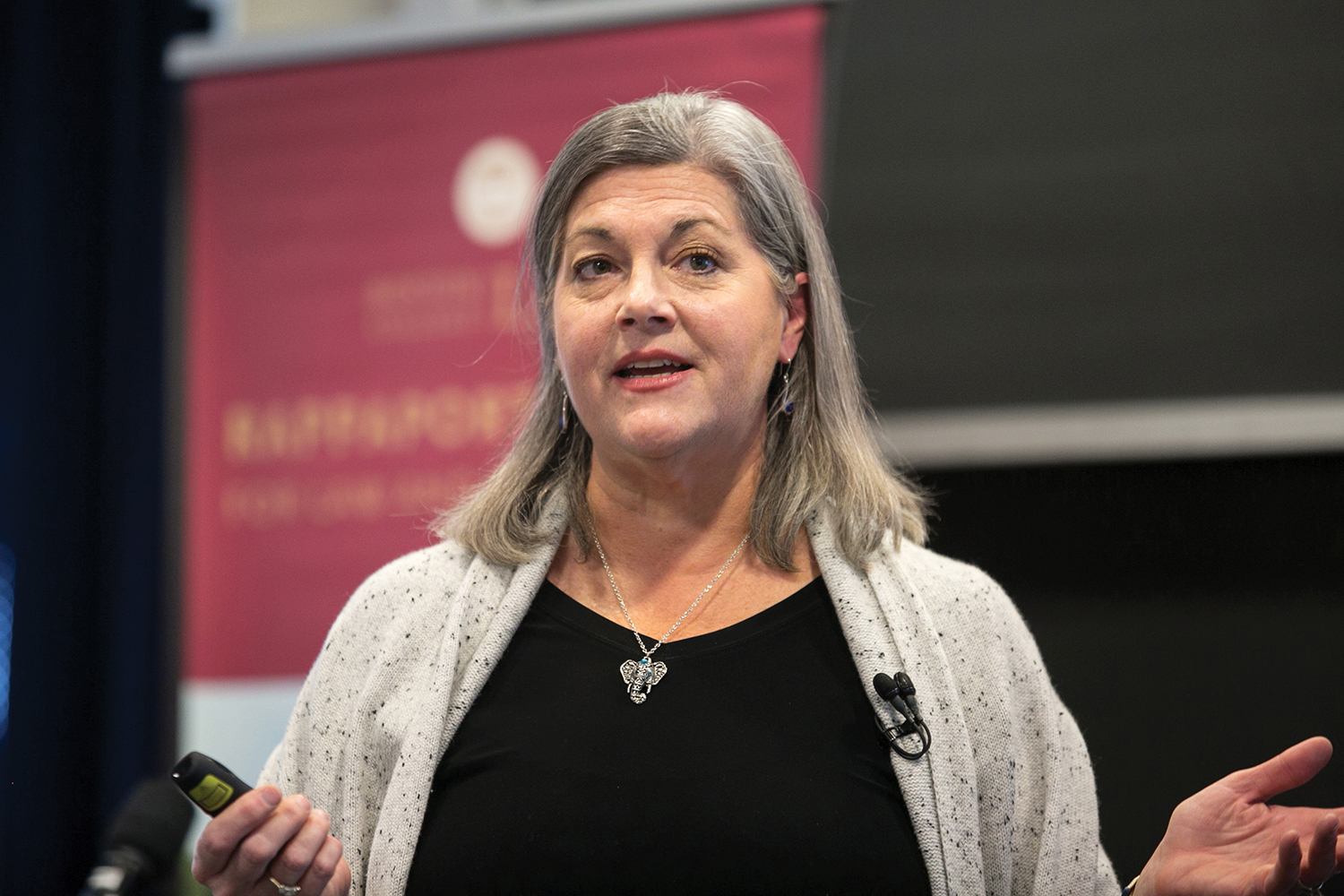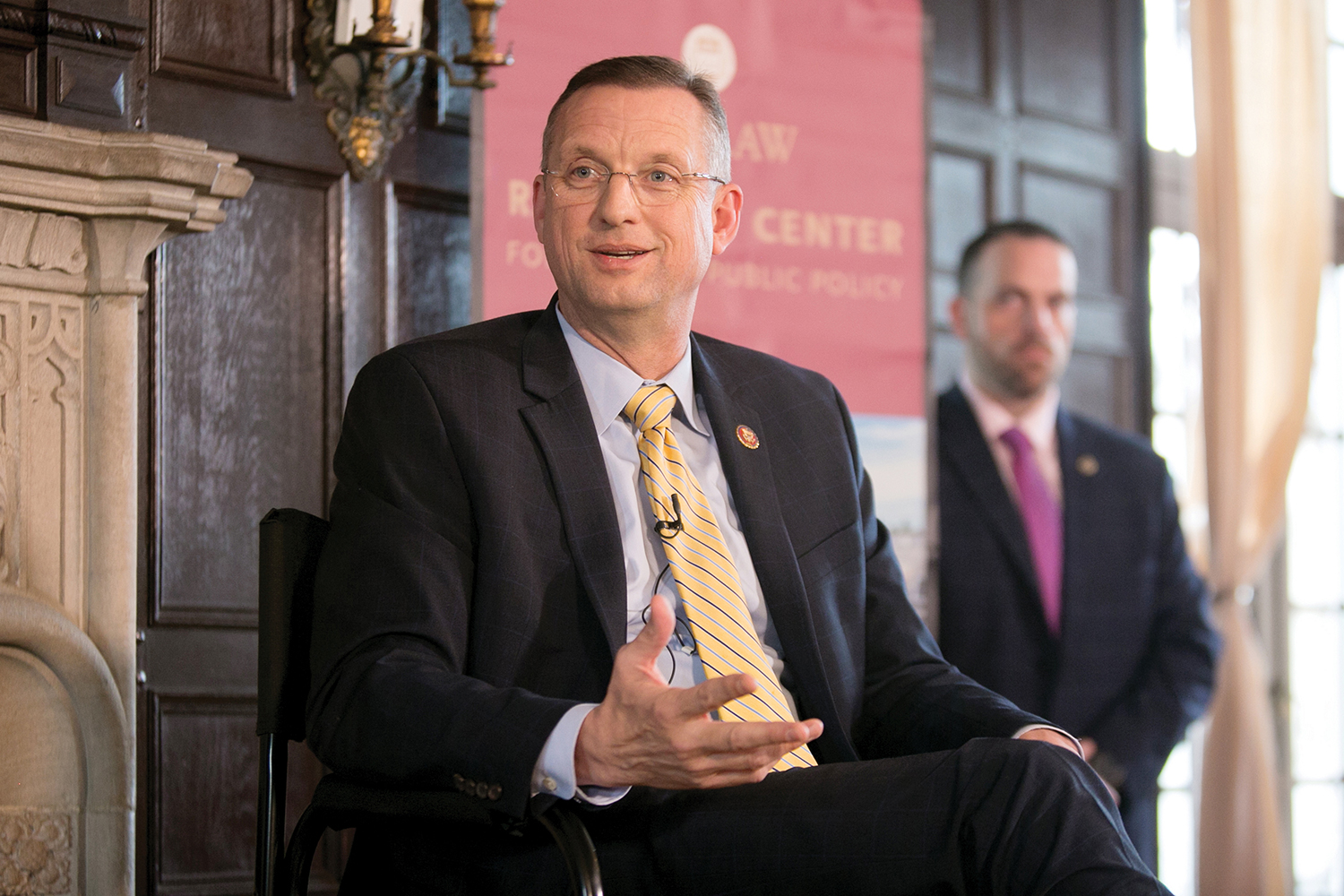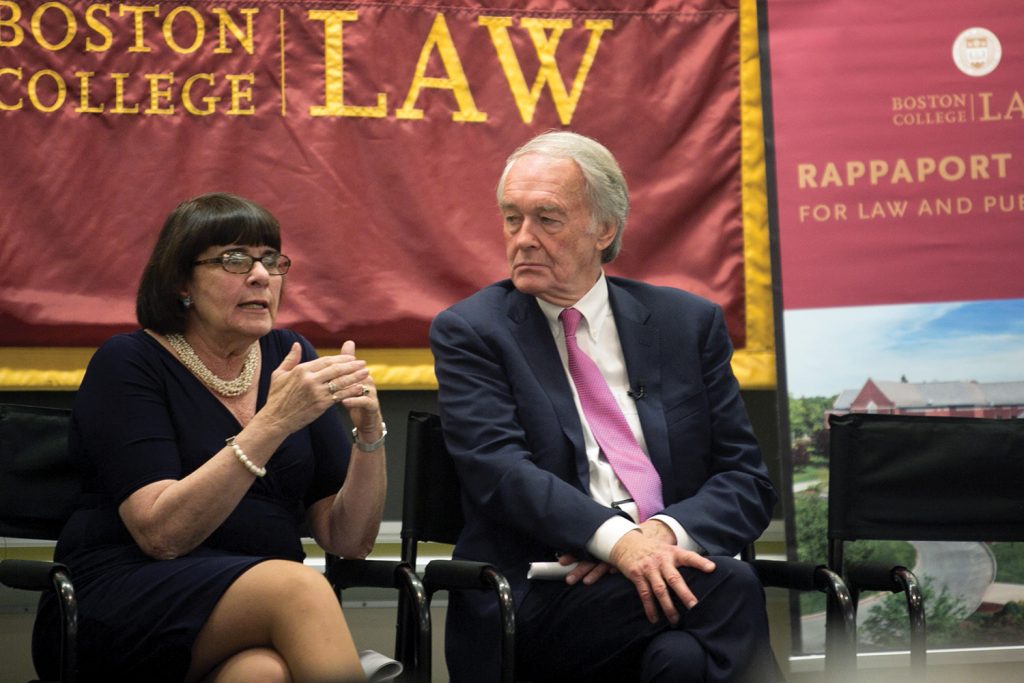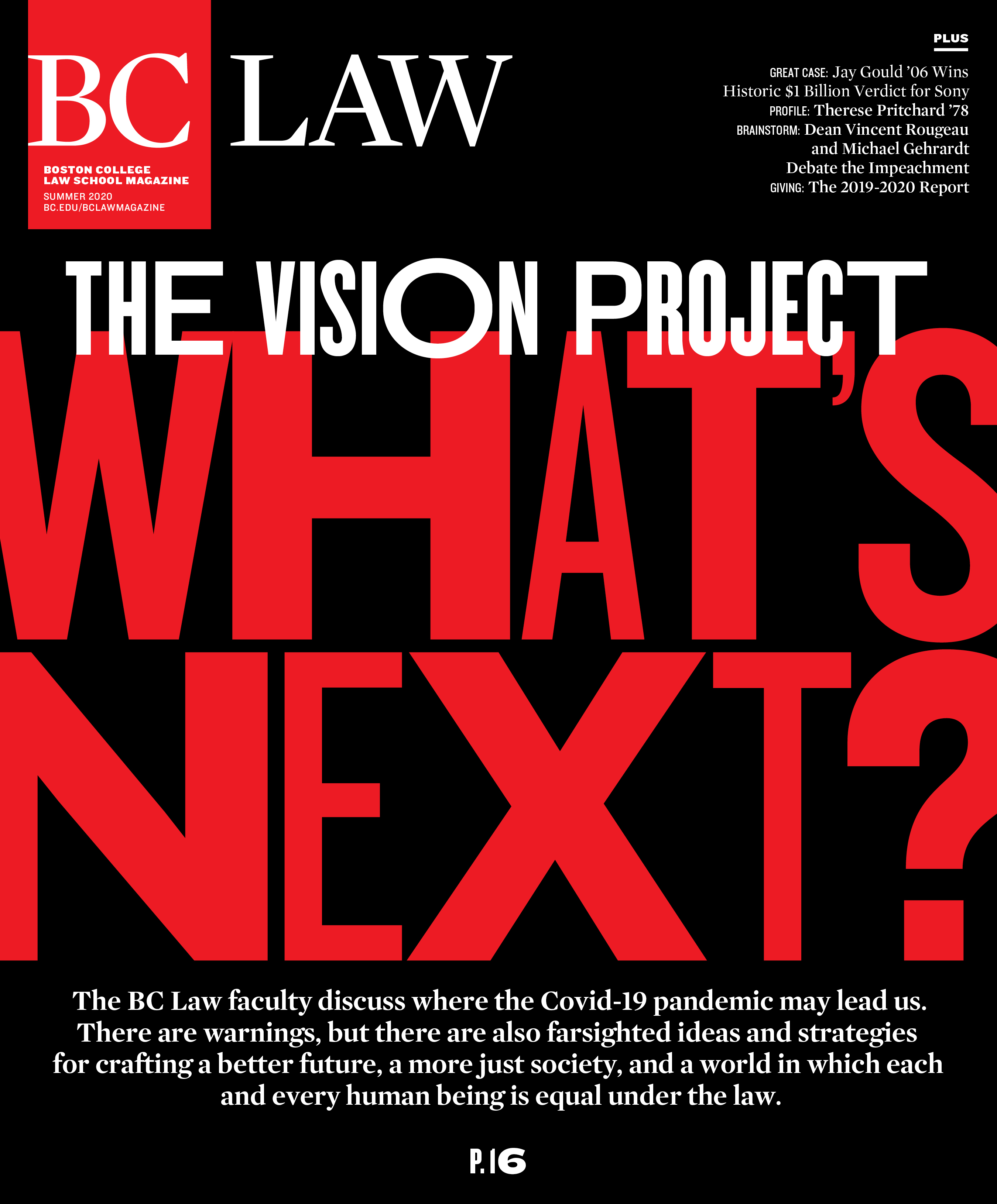In hindsight, the event was prescient: A March 9 panel at BC Law on ending mass incarceration while emphasizing the importance of crime prevention and rehabilitation. The message? That our criminal justice system has become a trap that places individuals with mental illnesses and substance abuse problems, among others, in a vicious and perpetual cycle of punishment.
The all-star panel of Massachusetts law enforcement officials and lawmakers convened for the Rappaport Center for Law and Public Policy mere months before a black man, George Floyd, was killed by a white Minneapolis policeman, triggering a nationwide outcry against racism and a renewed call for criminal justice reform.
The panel comprised US Senator Edward Markey ’72 (above right), Suffolk County District Attorney Rachael Rollins, Middlesex County District Attorney Marian Ryan ’79 (above left), Middlesex Sheriff Peter J. Koutoujian, and moderator Will Brownsberger, a Massachusetts state senator.
“We have an incredibly high recidivism rate for some low-level crimes. If we were manufacturing cars, we’d be shut down immediately. If you have a 67 percent failure rate as a car manufacturer, you wouldn’t be able to make cars anymore.” —Suffolk County (Mass.) District Attorney Rachel Rollins
Their March observations, statistically astute and systemically damning, are haunting in the context of Floyd’s death in May. “We incarcerated two million, mostly African American men, in the 1990s,” Senator Markey said. “We owe an apology to an entire generation of young African American men. The system failed them.”
DA Rollins said the criminal justice system—the “last catch basin at the end of several failing systems”—is not broken but rather has been working exactly how it was designed to work, resulting in unacceptably high recidivism rates. “We have an incredibly high recidivism rate for some low-level crimes,” Rollins said. “If we were manufacturing cars, we’d be shut down immediately. If you have a 67 percent failure rate as a car manufacturer, you wouldn’t be able to make cars anymore.”
Koutoujian, president of the Major County Sheriffs of America and the Massachusetts Sheriffs’ Association, said a one-size-fits-all approach to rehabilitation simply does not work. “There are some dangerous people in these facilities that we want to protect society from and maybe help them get through their time there, too,” Sheriff Koutoujian said. “But a lot of our population has issues that can be corrected with the right type of support.”
Likewise, the panel agreed that crime prevention should begin early on with education and support programs for troubled children and young adults. “We are a business that, unlike any other business, does not want repeat customers,” DA Ryan said. “The bulk of our work is figuring out how do we get in as early as possible and change people’s outlook, and help them with the things that very often lead them to the criminal justice system.”
OTHER RAPPAPORT CENTER EVENTS

Speaking from experience as the former first woman governor of Massachusetts, Jane Swift on January 15 launched her Jerome Lyle Rappaport Visiting Professorship at BC Law with a talk on how women in politics can leverage social media. Although it can be a particularly toxic environment for women, she said, social media generally acts as a “fundraising equalizer.”

US Representative Doug Collins (R-Ga.), ranking member of the House Judiciary Committee, participated on February 3 in a wide-ranging discussion on criminal justice reform, impeachment, and other hot political issues. Visiting Professor Jane Swift (R) led the questioning during which Collins emphasized the importance of bipartisanship even in a time of deep political divisions.
Rappaport’s May 19 webinar, “Helping Families and Children Cope with Covid,” brought together Harvard psychiatrists Michael Jellinek and Gene Beresin and psychologist Anne Fischel. While they acknowledged the difficulties of pandemic living, Fischel also saw a bright side, predicting we will experience “post-traumatic growth,” may value relationships more, and discover personal, internal strengths.
In early July, Rappaport presented “Covid-19 and Federalism: Opportunities and Challenges.” Webinar panelists were former US Solicitor General Donald Verrilli, Massachusetts State Solicitor Elizabeth “Bessie” N. Dewar, and Stanford Law Professor Michelle Mello. Dan Kanstroom, Rappaport Center faculty director, moderated.



